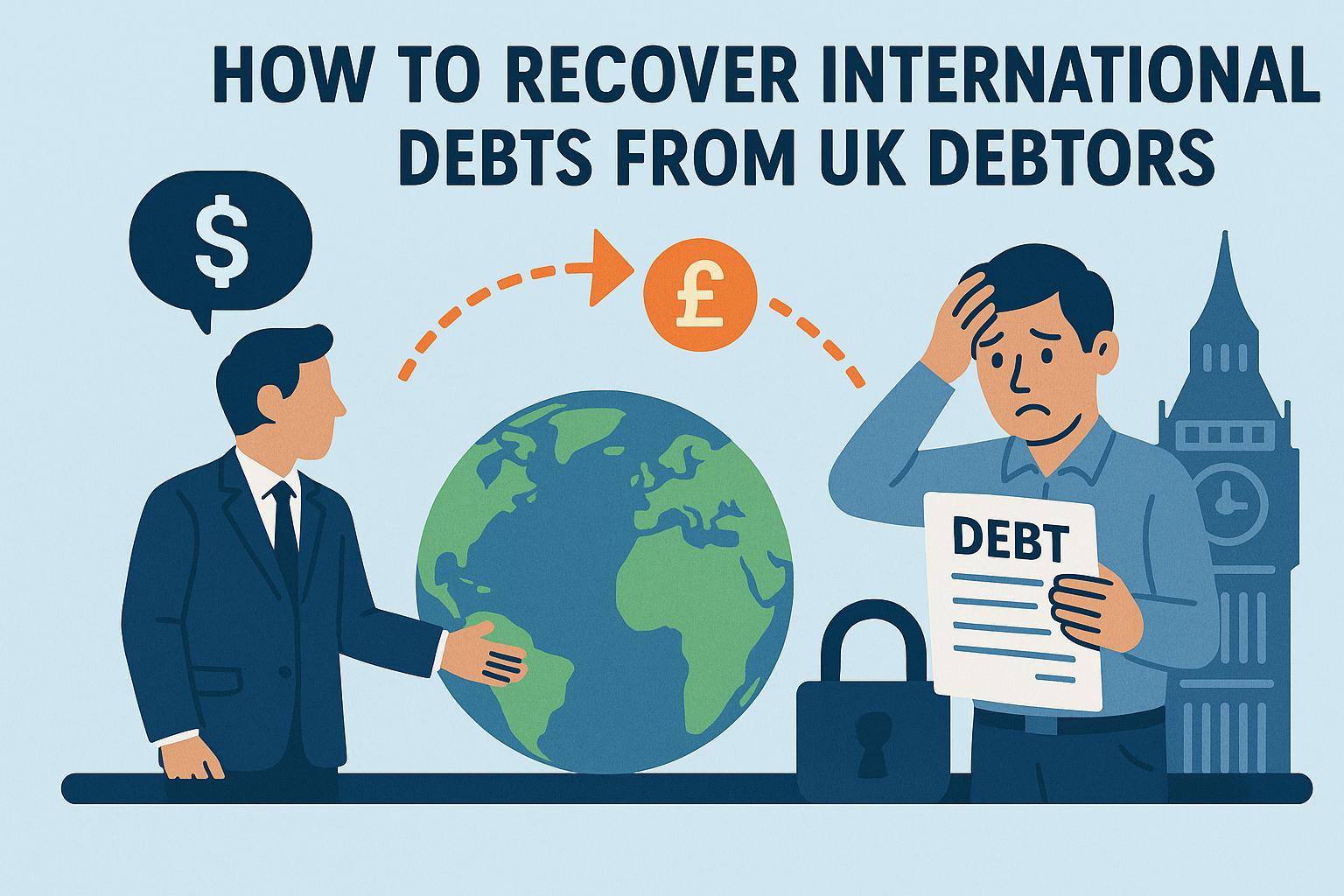
How to recover international debts from UK debtors.
Understanding International Debt Recovery from UK Debtors
When addressing international debt recovery from UK debtors, it is essential to comprehend the legal frameworks governing such processes. Navigating both local UK jurisdictional rules and relevant international treaties can make the recovery process considerably more efficient.
Legal Framework and Jurisdiction
The foremost step in recovering debt from a UK debtor involves establishing the pertinent legal jurisdiction. Courts in the UK follow specific guidelines under UK law, while also acknowledging certain international agreements. It is vital to determine whether the UK has jurisdiction over the debtor and if the enforcement of the debt is feasible under UK law.
English law frequently prevails in international contracts because of its comprehensive and predictable nature. Nevertheless, international creditors must be ready to face different interpretations and enforcement challenges that may arise.
The Role of European Regulations
Although the UK has exited the European Union, numerous EU regulations previously established still influence enforcement, particularly for debts incurred prior to the exit. The Brussels Regulation and the Rome I Regulation are instrumental in determining jurisdiction and applicable law, respectively.
Engaging Professional Legal Help
Given the complexities involved in international debt recovery, it is prudent to engage a legal professional acquainted with both UK debt recovery processes and international law. Solicitors or law firms specializing in international debt recovery can offer invaluable assistance and ensure compliance with all legal frameworks.
Debt Collection Agencies
Another alternative is enlisting the services of debt collection agencies with expertise in international recoveries. These agencies generally have a network that spans various jurisdictions, including the UK. They typically operate on a no-win, no-fee basis, although their fees may vary depending on the agency and the complexity of the case.
Negotiation and Mediation
Prior to initiating legal proceedings, pursuing negotiation or mediation with the debtor can be a cost-effective and time-saving strategy. Mediation can often lead to a mutually agreeable settlement without requiring court intervention. Clearly defined terms, such as repayment schedules, can facilitate enforcement of the agreement without additional complications.
Litigation
If negotiations prove unsuccessful, litigation becomes a necessary course of action. The claimant must file a lawsuit in the appropriate UK court. UK courts are known for their fairness and efficiency, but the process can be lengthy and costly. It is crucial to weigh the litigation costs against the potential amount that can be recovered.
Enforcement of Judgments
Once a court judgment is secured, the subsequent step involves enforcement. The UK provides several mechanisms, such as charging orders, attachment of earnings, or obtaining writs of control, to facilitate repayment. In cross-border scenarios, enforcing a UK judgment in a debtor’s home country may require additional legal procedures.
Preventive Measures
Creditors should implement robust risk management strategies to minimize exposure to defaulting debtors. Conducting thorough due diligence, requiring contractual security, and maintaining transparent documentation are effective preventive measures.
Visit GOV.UK for more information on creditor rules for money owed by UK debtors.
By comprehending these processes and engaging professional support where necessary, creditors can adeptly navigate the challenges of international debt recovery from UK debtors. Understanding the legal landscape, leveraging negotiation, mediation, and litigation when necessary, and ensuring preventive measures are in place will enhance the likelihood of successful debt recovery.
- Posted by
 admin
admin - Posted in Uncategorized
 Nov, 27, 2025
Nov, 27, 2025 Comments Off on How to recover international debts from UK debtors.
Comments Off on How to recover international debts from UK debtors.
